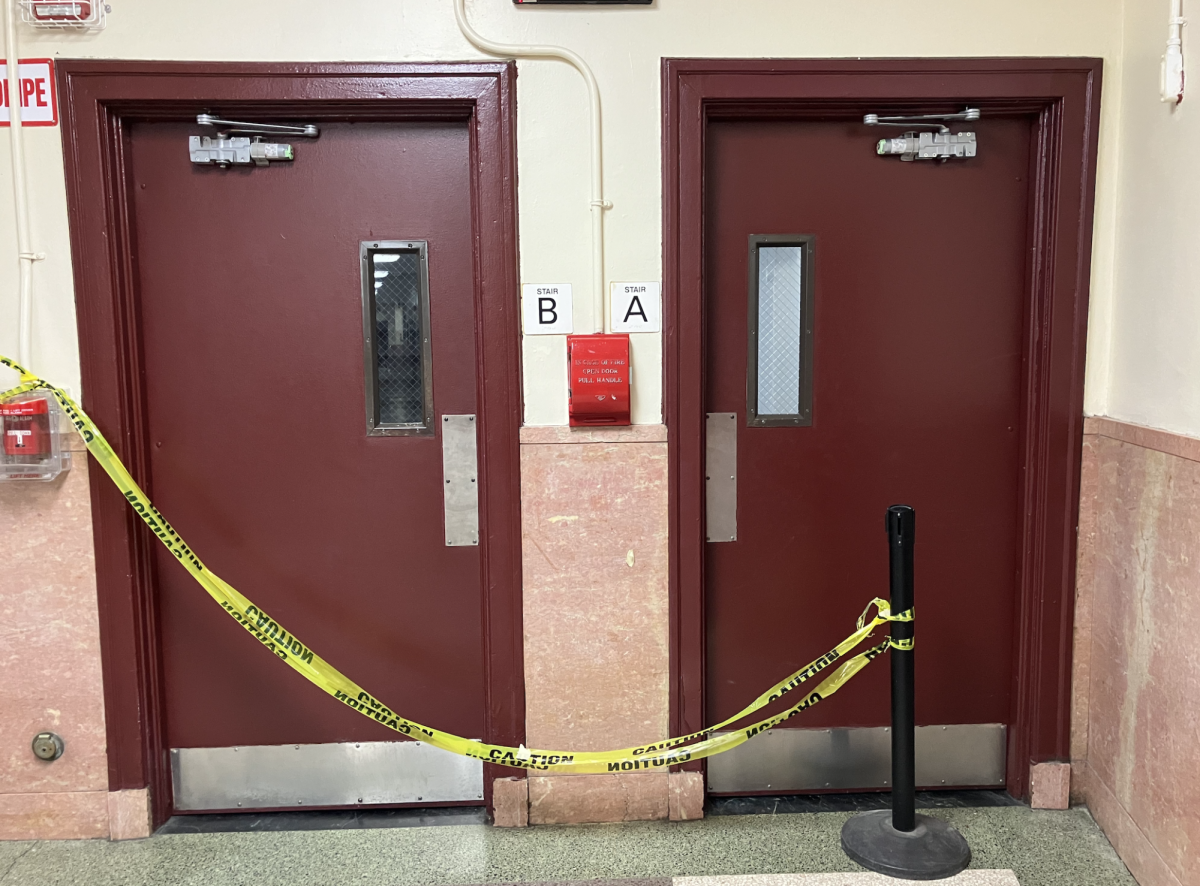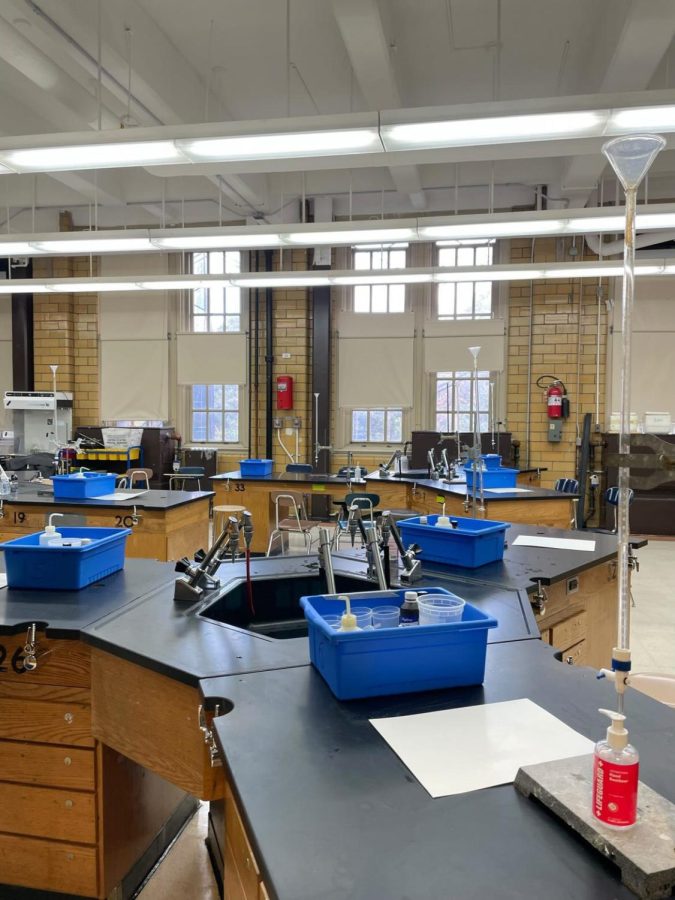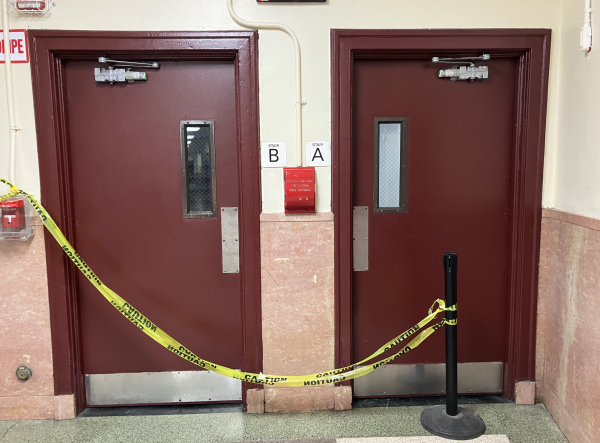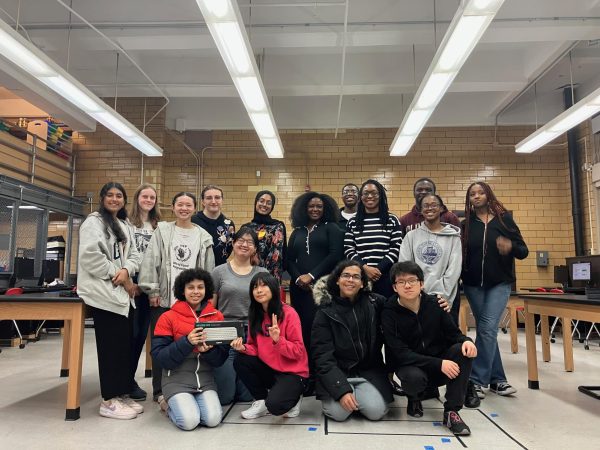Your STEM Major: Is It Worth It?
Already a pressure cooker for underclassmen, Brooklyn Tech adds even more heat with its major process. At the end of sophomore year, students apply for a major to study during their junior and senior years. While majors such as Law and Society and Social Science Research are options for students, Tech is primarily a Science, Technology, Engineering, and Math (STEM) school, and the majority of the majors fall under that category. The Survey recently investigated the level of satisfaction STEM students have with their majors, and if the major system is setting students up for successful STEM careers.
Picking a major can be a difficult decision, and while students claim major choices should solely be based on their interests and hopes for the future, other factors can get in the way. Ruby Frank (‘24), a Finance major, explained, “Everyone let what the seniors and juniors were saying about the major influence their choice and I feel like it should be about your own personal interests not the difficulties of the classes.” Dylan Marks (‘24), also a Finance major, agreed. He said, “I feel like a lot of people are going to their major just because other people are going to that same major and that’s kind of foolish.”
However, these same students expressed satisfaction with their choices in the end. Frank stressed the flexibility the Finance major provides. “The skills we learn in the Finance major are applicable to any career, any life experience.” The Finance major has few requirements compared to other majors, making it a good choice in terms of balancing classes. Frank elaborated, “I think it is reasonable. We only have two periods and I know other majors have four.”
Similarly, Ari McMinn (‘23) expressed great satisfaction with the Chemistry major, and has no regrets with his choice. McMinn may not continue studying chemistry, but he feels the major has set him on the right path. He explained, “Chemistry [has provided] a great foundation for me in the future. It’s a great foundation for biological sciences which is what I’m really interested in.”
Zoe Reid (‘24), a Biological Science major, chose her major for very different reasons. Reid was intrigued by the unique classes the major offered. She said, “I was stuck between [Biological Science] and LIU Health, but in senior year, Biological Science has Anatomy and Genetics and those seemed really interesting. Since I would automatically get into those classes, I chose [Biological Science].” The rigorous courses offered in both junior and senior year by the Biological Science major dive into the depths of humans and the environment, similar to courses that colleges would offer. Reid found the opportunity to take those classes hard to pass up, and prioritized the engaging subjects over worrying about a potential career path.
Some students, like Ela Ekincioglu (‘23), a Math major, have experienced pros and cons with her major choice. She explained, “I knew I wanted to go into a STEM field in college but I didn’t know what yet, and the math classes are really unique. You take Graph Theory and Linear Algebra. I know I’m going into engineering so it’s relatively helpful.” The Math major is on the smaller side but offers intriguing classes that give students a taste of advanced math courses. However, Ekincioglu has experienced scheduling issues as a result of her major choice. “The rough thing this year is that there was no science on your schedule and as a STEM major I would like a science. You have to go through the process of getting an elective that’s a science. It is hard to rearrange stuff with your schedule since you have so many of these Math major classes.”
Some who have chosen STEM majors have found that their choice was entirely not the right fit for them. Robert Uuganbayar (‘24), an Aerospace major, spoke about his mistake in his choice of major. “I have severe regrets. I really hate the major and all the kids in it don’t seem like people I’d really talk to.” He further elaborated, “I was considering a career as a pilot. Honestly, the high school major classes don’t really matter for your future career. I’d rather just have an easy time. I’m still going to be a pilot.” Uuganbayar’s experience reflects that a major choice does not necessarily need to reflect your future career path, and for some students it might be best to choose the major with classes that seem the most interesting to them, as Reid chose to.
Teachers also see benefits in the flexibility the major system provides. Ms. Doire, an AP Biology teacher, claimed majors “makes programming doable,” as students can balance their mandatory classes with electives that are of interest to them. She also believes the system makes students more engaged in their classes, explaining, “…I kind of assume that my students are interested in biology because they chose the major and that’s a benefit for me as a teacher.”
Doire also described the social importance of majors at Tech. She explained, “I think that it can have a positive effect if it makes our huge school into smaller communities so kids within a major might get to know kids in their major. That would make a small community in this very huge school, which seems like a good thing.”
Whether or not students were happy with their majors, there was a general consensus that it is important to have majors at Tech. Even if students do not pursue their Tech major in college, they can still benefit. William Chan (‘24) explained, “I think majors are really good because it lets you decide what you want to do in the future. If you take a major in high school and you don’t like it, you know not to take that major in college.” In the end, most STEM majors appreciate that the major system has allowed them to narrow down their interests and find a community in a school of over 6,000 students.

Alice Dawson-Hollow (she/her) is a Co-Editor of STEM. Alice is on The Survey because she loves researching...
















































rhys • Oct 22, 2022 at 5:43 pm
this is so fire